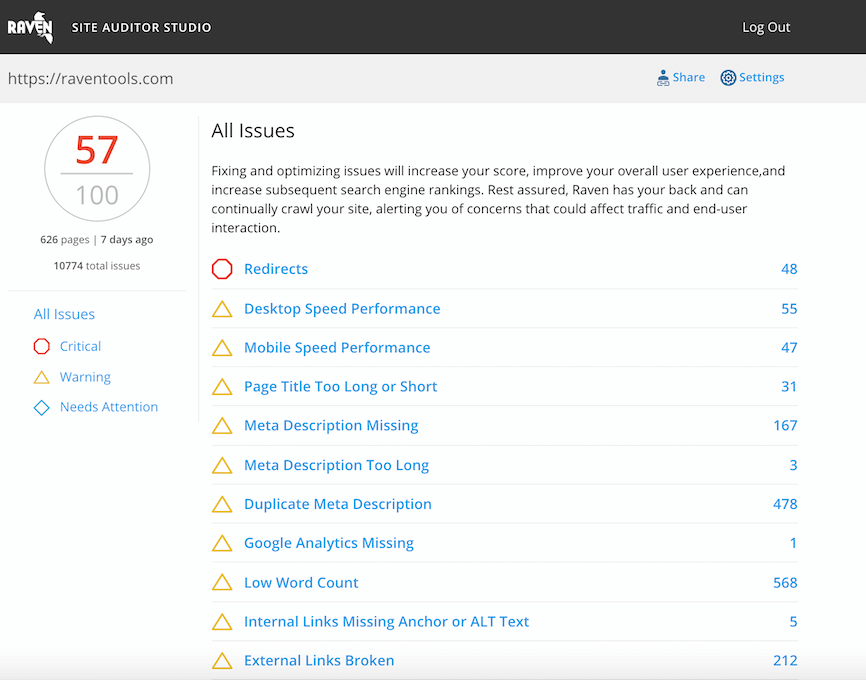As marketers, we often focus on the technical side of things – optimization, promotion and conversion. But without quality content, even the best marketing strategies can fall flat. So how can you be sure that your articles, blog posts and other content interests your audience and makes them want to share?
It all starts long before pen meets paper: coming up with a topic.
Coming up with content topic ideas can feel like a tedious task a lot of the time, so it’s easy to neglect. When you’re in “writing mode,” you may just want to get some words on paper and worry about what the point is later.
That approach is a mistake. Great content doesn’t happen without great topic ideas.
No amount of promotion or SEO is going to drive ROI for your content if no one cares about it. Without demand for the information it provides, your content has little meaning. You have to generate ideas that people want to learn about, or your content strategy is dead in the water.
Finding Content Rooted In Demand
There are two types of content ideas: those that come out of nowhere and those that are rooted in demand. There is a time and place for both, but if your aim is to hit specific goals with your content marketing, then you need to stick with the latter.
The problem with coming up with ideas off the top of your head is that, unless you do some research, you have no reason to believe that anyone else will find them interesting. For example, I might think that an article about “The History of Q-Tips” would be super interesting (and sure to be a viral hit!), but my opinion isn’t enough.
Neither is the opinion of a random friend or coworker. In order to say with confidence your topic will interest a large number of people, you need a significant sampling in order to pull ideas that resonate with a sizable audience.
Fortunately, there are a number of tools offering simple ways to get human-sourced and verified content ideas. The “human” part is the key because some tools spit out content ideas but aren’t backed by data from actual readers. Stay away from those.
What you want are ideas that are validated through some sort of human interaction, like upvotes, search queries or forum posts.
Enough people talk, post, and share online every day that — with the right approach — you can let the Internet masses come up with content ideas for you. With a few tools and some simple setup, you’ll have no trouble generating targeted content. From there, all you’ll need to do is open up your favorite text editor and start typing.
Here are my top six go-to sources when I need to produce content ideas quickly.
No. 1 – Magic Recs on Twitter
@MagicRecs mysteriously showed up on Twitter a couple of years ago, offering to keep followers “in the know.” Here’s how it works: You follow the account, and they’ll pass along DMs with breaking news updates in your Twitter circle. They’ll also let you know when a new account is being followed by a lot of your followers.
Many of MagicRecs features have been rolled into Twitter’s official recommended features, but this Twitter account will keep you in the loop on big changes in your industry or areas of interest. You’ll be among the first to know when anything big happens without lifting a finger.
No. 2 – Quora
Quora is one of the few gathering places online where discussions remain mostly helpful and intelligent. People asking questions on Quora know they can gather opinions from verified experts.
That makes Quora especially valuable as a source of content ideas. Browse through the E-Commerce or Hiking categories, for example, and you’ll see dozens of questions for which real people are seeking answers. If you can answer one of those questions in an informed, well-written post or article, you’re guaranteed an audience.
You can set up email alerts through Quora to get a running list of popular discussions on their site. This will keep you plugged in to information about your industry that people seek and streamline vetting topic ideas for your website or blog.
No. 3 – Helpmewrite.co
Help Me Write is an online community consisting of writers who share ideas and receive upvotes for those the community is interested in reading. This is an easy way to test out new ideas before investing time and energy into turning them into reality. You can also easily share ideas with your followers and ask them for input on new topics that they’d be interested in.
No. 4 – Twitter
Much like Quora, Twitter’s ever-updating community gives you an opportunity to get new content ideas in real time. Monitor Twitter for keywords, topics and questions related to your industry.
One of my favorite things to do when writing new content about SEO is to monitor tweets containing questions or concerns about SEO. Searching for phrases like: “does SEO,” “is SEO,” “why is SEO,” and “how can SEO” will allow you to see what questions people are asking about the topic.
People are constantly asking questions on Twitter, and there are a number of ways you can use this real-time firehose to capture new ideas. You can even use Twitter’s API to customize how you receive the search stream.
No. 5 – Übersuggest
I can’t write about generating content ideas without talking about Übersuggest. When I think of data-backed content ideas, it’s the first thing that comes to mind. It scrapes Google suggest, which is powered by search volume data from Google users. This means you can see exactly what people are searching for, right down to the specific keywords.
This data can help you come up with not only topic ideas, but also ideas for keywords to include within your content. As an added bonus, it also gives you a peek behind the curtain at the extremely weird things that we all search for:
If you’re an overachiever, you can build you own Google Suggest scraper with customized query parameters that best suit your needs.
No. 6 – Amazon Reviews
Amazon’s review section can be an enlightening (and sometimes hilarious) corner of the web. Not only is the posted information useful when making a purchase, but the user-generated content is a great way for unearthing new content ideas. You can peruse (mostly) real stories and experiences from people using certain products and figure out exactly what they like and don’t like.
If you’re writing content to market a specific product, these types of real-world examples are invaluable. People often turn to products to solve particular problems, and when those products don’t produce the results they want, they take to the reviews sections to vent. If you can identify a common issue or frustration, you may be able to create useful content that offers a solution.
For example, I was recently in the market for a pool cover pump and decided to take a look at my options on Amazon. After reading through a dozen different pumps and siphon systems reviews, it became apparent that consumers struggled with common issues which I never even realized existed. People have trouble clearing high-fenced pools; they want to know how to prevent birds from damaging pool covers; they can’t seem to figure out how to get the last few inches of water off of their pool covers.
If I were writing for a pool company, I’d have nailed down 10 new topic ideas in 30 minutes of browsing Amazon. Seek out products or books related to your industry and gather content ideas by understanding the needs of your target market.
Coming up with ideas for content that are both interesting and within your area of expertise can be challenging, but thanks to the web, you have a wide variety of resources at your disposal. There are still millions of questions left to be answered online, and if you can figure out what they are, your content is sure to be a hit.

Analyze over 20 different technical SEO issues and create to-do lists for your team while sending error reports to your client.




